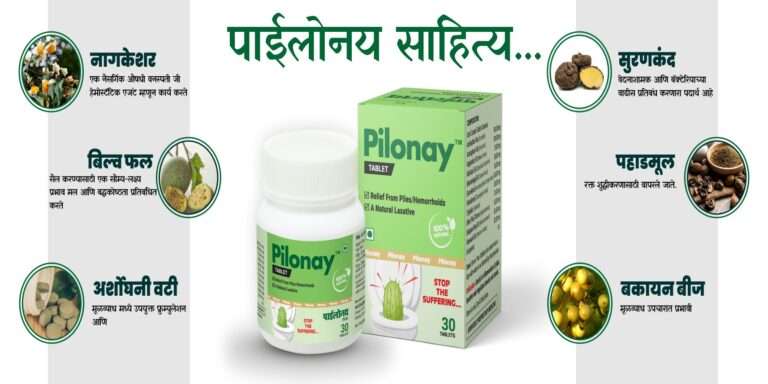Introduction:
Ayurveda, an ancient Indian system of medicine, offers a holistic approach to health and well-being. When it comes to piles, Ayurveda provides natural remedies that focus on balancing the body, mind, and spirit. These remedies aim to address the root causes of piles and promote healing from within. In this article, we will delve into the world of Ayurvedic piles cure, exploring various herbs, therapies, and lifestyle practices that can assist in managing this condition. Let’s embark on this journey of natural healing!
Understanding Piles in Ayurveda:
According to Ayurveda, piles are associated with an imbalance in the Pitta and Vata doshas, which govern the digestive and elimination processes. When these doshas are imbalanced, it leads to the accumulation of toxins, constipation, and inflammation, ultimately resulting in piles. Ayurvedic treatment for piles aims to restore the balance of these doshas and promote healthy digestion and elimination.
Ayurvedic Piles Cure:
1. Triphala:
Triphala, a combination of three fruits (amalaki, bibhitaki, and haritaki), is widely used in Ayurveda for digestive health. It helps regulate bowel movements, relieve constipation, and reduce inflammation. Consuming Triphala powder or capsules can be beneficial in managing piles.
2. Ayurvedic Herbs:
Several Ayurvedic herbs have shown efficacy in treating piles. These include:
• Aloe Vera: Aloe vera has anti-inflammatory properties and can provide relief from itching and burning associated with piles. Apply aloe vera gel directly to the affected area for soothing relief.
• Guggul: Guggul resin is known for its anti-inflammatory and analgesic properties. It helps reduce inflammation and alleviate pain associated with piles. Guggul can be consumed in capsule form or applied topically as an ointment.
• Haritaki: Haritaki is a potent Ayurvedic herb that promotes healthy digestion and regulates bowel movements. Consuming haritaki powder or capsules can help relieve constipation and reduce the risk of piles.
• Turmeric: Turmeric contains curcumin, a compound known for its anti-inflammatory and antioxidant properties. Adding turmeric to your diet or taking curcumin supplements can help reduce inflammation and provide relief from piles.
3. Ayurvedic Therapies:
Ayurvedic therapies can aid in the management of piles by promoting detoxification, improving digestion, and reducing inflammation. Some commonly used therapies include:
• Panchakarma: Panchakarma is a detoxification and rejuvenation therapy that involves various treatments like medicated enemas (basti) and herbal oil massages (abhyanga). Panchakarma helps eliminate toxins, regulate digestion, and promote overall well-being.
• Kshara Sutra: Kshara Sutra is a specialized Ayurvedic treatment for piles that involves the use of medicated threads. These threads are tied around the base of the pile mass, promoting shrinkage and healing.
4. Lifestyle Practices:
• Healthy Diet: Follow a Pitta and Vata pacifying diet, including fresh fruits, vegetables, whole grains, and adequate fiber. Avoid spicy, oily, and processed foods that can aggravate the doshas.
• Hydration: Drink plenty of water throughout the day to keep the body hydrated and aid in smooth bowel movements.
• Regular Exercise: Engage in gentle exercises like yoga, walking, or swimming to promote healthy digestion, improve blood circulation, and prevent constipation.
• Stress Management: Practice stress management techniques such as meditation, deep breathing exercises, and yoga to reduce stress levels, as stress can contribute to the aggravation of piles.
• Good Bowel Habits: Establish a regular bowel movement routine and avoid straining during bowel movements. Respond promptly to the urge to defecate and maintain proper hygiene.
When to Consult an Ayurvedic Practitioner?
While Ayurvedic remedies can be beneficial, it’s important to consult an experienced Ayurvedic practitioner for a personalized treatment plan, especially if:
• The symptoms persist or worsen despite trying natural remedies.
• You have underlying health conditions or are on medication.
• The piles are severe or accompanied by excessive bleeding.
An Ayurvedic practitioner can assess your unique constitution (dosha) and provide guidance on suitable remedies and therapies.
Conclusion:
Ayurveda offers a natural and holistic approach to managing piles. By incorporating Ayurvedic herbs, therapies, and lifestyle practices, you can address the underlying imbalances and promote healing from within. Embrace the wisdom of Ayurveda, consult a qualified practitioner, and embark on a journey of natural healing for piles and overall well-being.


